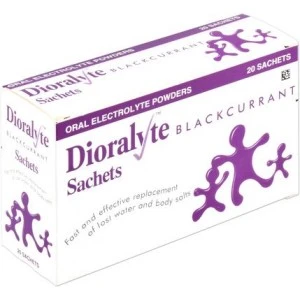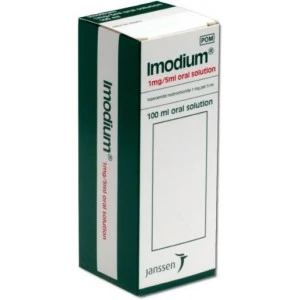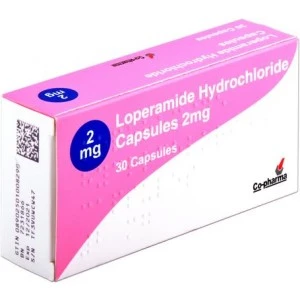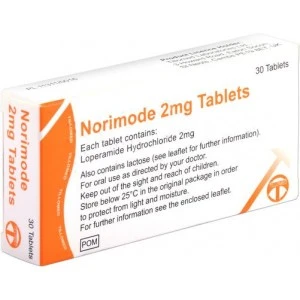Diarrhoea
Diarrhoea is a common condition which can occur for a number of reasons, including infections and intolerances.
Our online doctor service makes it easy for you to find the right diarrhoea treatment for you and have it delivered straight to your door in discreet packaging.
Dioralyte
- Replenishes lost electrolytes
- Actively rehydrates
- Drinkable solution
Imodium
- Relieves diarrhoea
- Different forms available
- Dispatched from a UK-registered pharmacy
Imodium Syrup SF
- Regulates bowel movements
- Thickens stools
- Easy to take oral suspension
Loperamide
- For acute diarrhoea
- Slows bowel movements
- Aids rehydration
Norimode
- Reduces bowel spasm
- Relieves diarrhoea
- Available for next-day delivery
What is diarrhoea?
Diarrhoea is a common condition which causes you to defecate more frequently. Your stools may be loose and watery. The condition is often accompanied by stomach discomfort and sometimes vomiting.
After the stomach partially digests food, it passes through the intestines. Waves of contractions within the gut slowly push the matter through the intestinal tract, allowing bacteria in the intestines to extract any remaining water and nutrients through fermentation.
Once the matter reaches the sigmoid colon - a part of the large intestine just before the rectum - the faeces should be dry and compact, ready to be expelled from the body through defecation.
If the faeces are pushed through the large intestine quickly, which can occur after eating a large meal, or if an infection interferes with the natural gut flora (the bacterial ecosystem of the gut), the bacteria cannot work as effectively to remove the water and nutrients. As a result, the faeces reach the sigmoid colon and rectum with an excessive amount of water, thus causing diarrhoea.
What is Travellers' Diarrhoea?
The term “travellers' diarrhoea” is often used to describe a bout of diarrhoea that occurs after travelling to a place with poor public hygiene. Most cases of travellers' diarrhoea are caused by bacterial infections, such as Salmonella, Shigella, and E. coli, which are contracted from contaminated water, uncooked foods, and dairy products, as well as food poisoning or parasitic infections.
If you plan to travel abroad, you can use the NHS Fit For Travel website for information about the risks associated with certain countries and climates.
While diarrhoea is unpleasant, it typically clears up within a week. If your diarrhoea lasts longer than 7 days, you should consult your GP to determine the cause.
What can cause diarrhoea?
Many conditions can cause diarrhoea. Short-term diarrhoea can be caused by:
- Alcohol
- Anxiety
- Appendicitis
- Bacteria (E coli, Shigella, Salmonella)
- Food intolerances
- Food poisoning
- Intestinal damage
- Medicines (antibiotics, SSRIs, NSAIDs, statins and laxatives)
- Parasites
- Viruses (norovirus and rotavirus)
If you suffer from long-term diarrhoea, you should speak to your doctor about appropriate treatments.
While diarrhoea itself is relatively simple to diagnose, it can be challenging to identify the underlying medical condition that is causing it. In the cases of intolerances and alcohol consumption, your diet may need to be adjusted.
How can I prevent diarrhoea?
Diarrhoea is often the result of an infection from a virus or bacteria, so preventing diarrhoea relies on maintaining high personal hygiene standards to prevent these types of infections.
- Avoid cross-contamination between cooked and uncooked meat
- Avoid sharing towels and utensils with other people
- Regularly clean bathroom facilities, including the toilet seat and handle
- Wash your hands after each use of the toilet
If a food intolerance causes your diarrhoea, swapping out the food you are allergic to with something you are not allergic to can help prevent diarrhoea. If you suspect you have a food intolerance, such as coeliac disease or lactose intolerance, speak to your GP. Food additives and other chemicals, such as caffeine, histamine, and monosodium glutamate (MSG), have also been reported to cause diarrhoea in some people.
It can sometimes be challenging to prevent diarrhoea, especially when travelling abroad, but appropriate steps can and should be taken to avoid diarrhoea.
Can diarrhoea be treated?
While diarrhoea as a symptom can often be easily treated, the underlying condition which causes it may need a separate course of treatment. For example, a bacterial infection may require a short course of antibiotics to rid the infection, or intolerance may require a change in diet to prevent diarrhoea from recurring.
You should speak to your doctor to determine the cause of your diarrhoea so that they can advise the best treatment for you.
There are several treatments for bouts of diarrhoea, which all work in different ways.
Loperamide, Norimode and Imodium reduce the number of contractions in the intestines, slowing down the movement of faeces within the bowel and restoring the natural rhythm of your bowels.
Dioralyte is an electrolyte drink which can increase the viscosity of your stools and prevent dehydration, which can often occur during an acute case of diarrhoea. The powder is mixed with water to create a solution which you drink.
While suffering from diarrhoea, you should stay hydrated by drinking plenty of water or squash. If you feel sick, take small sips of water or squash throughout the day to remain adequately hydrated.
Alcohol should also be avoided while treating diarrhoea. Not only can alcohol increase your chances of experiencing side effects of an antidiarrhoeal, such as nausea and dizziness, but it can also increase the speed at which faecal matter travels through your bowels. This increase in speed prevents water from being absorbed effectively, resulting in loose and watery stools.
If you can eat, try eating small portions of food. Avoid spicy foods or those high in fat, as they may worsen your diarrhoea. The NHS recommends eating potatoes, rice, bananas, boiled vegetables and salty foods if you are suffering from diarrhoea.
While treating diarrhoea, be vigilant for the signs and symptoms of dehydration, which may include:
- Dark urine
- Dizziness
- Dry mouth
- Dry skin
Muscle cramps, sunken eyes, dizziness, confusion and fainting can occur in severe cases. If you suspect severe dehydration, seek immediate emergency medical attention.
When should you see your doctor?
Diarrhoea can be a symptom of some serious health conditions. If any of the following symptoms accompany your diarrhoea, speak to your GP:
- Blood in stools
- Dark or black stools
- Severe stomach ache
- Symptoms of dehydration (mentioned above)
- Vomiting
- Weight loss
If your diarrhoea lasts more than a week or if it recurs frequently, speak to your GP.
© 2013 - 2026 Al Muhsineen Limited. All Rights Reserved. Registered Pharmacy: 34 Halliwell Road, Bolton BL1 8RL. Registered Office: 254 First Floor, Shearbrow, Blackburn, England, BB1 8DS











